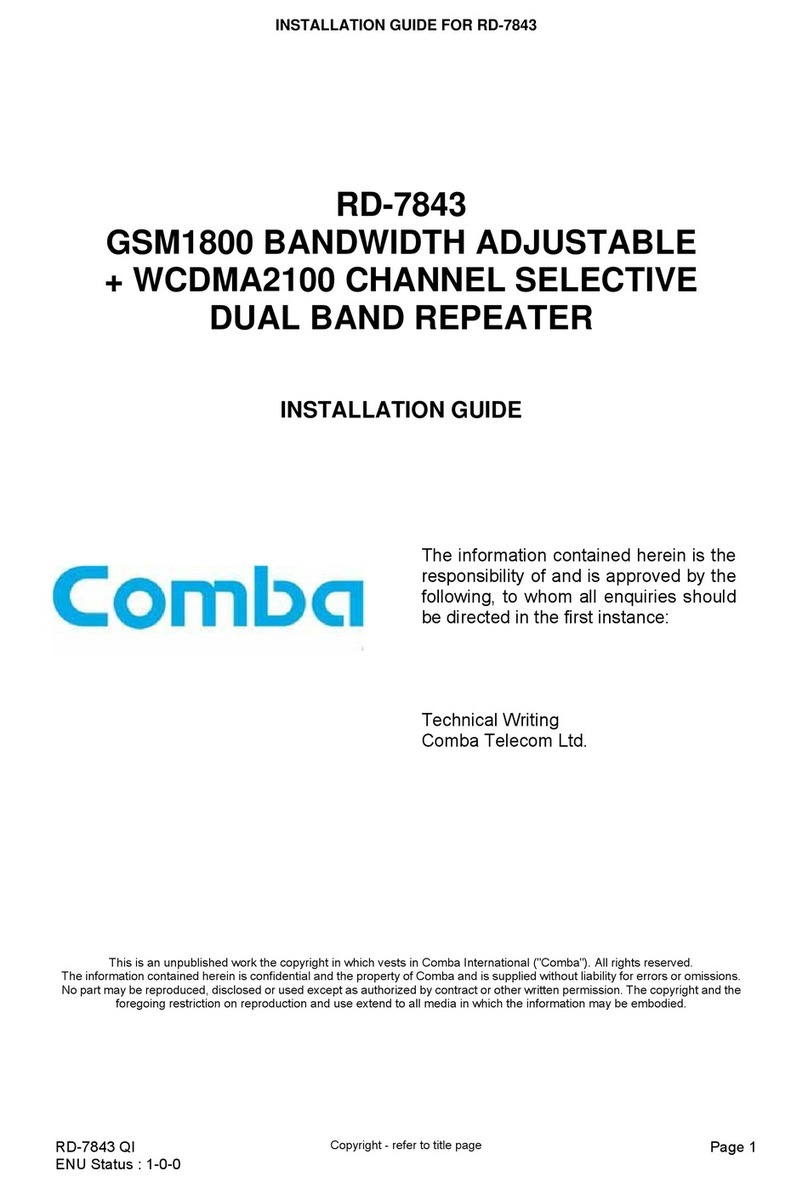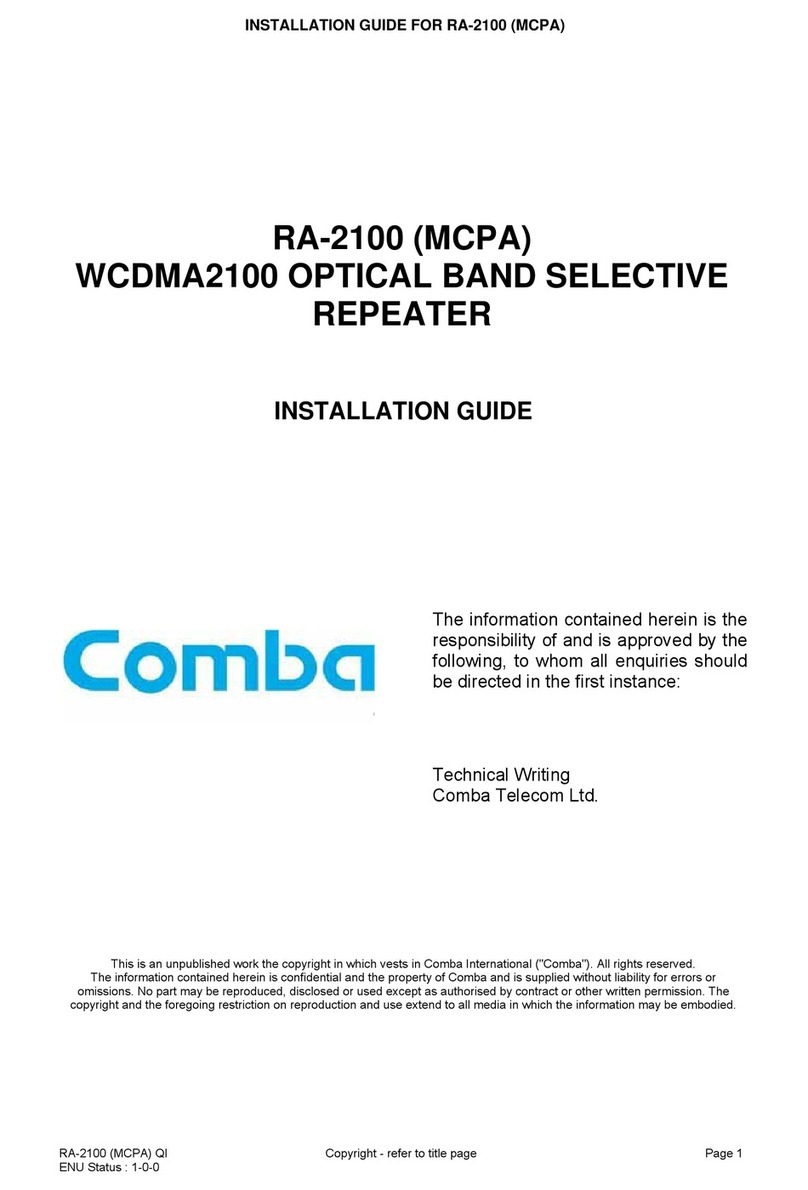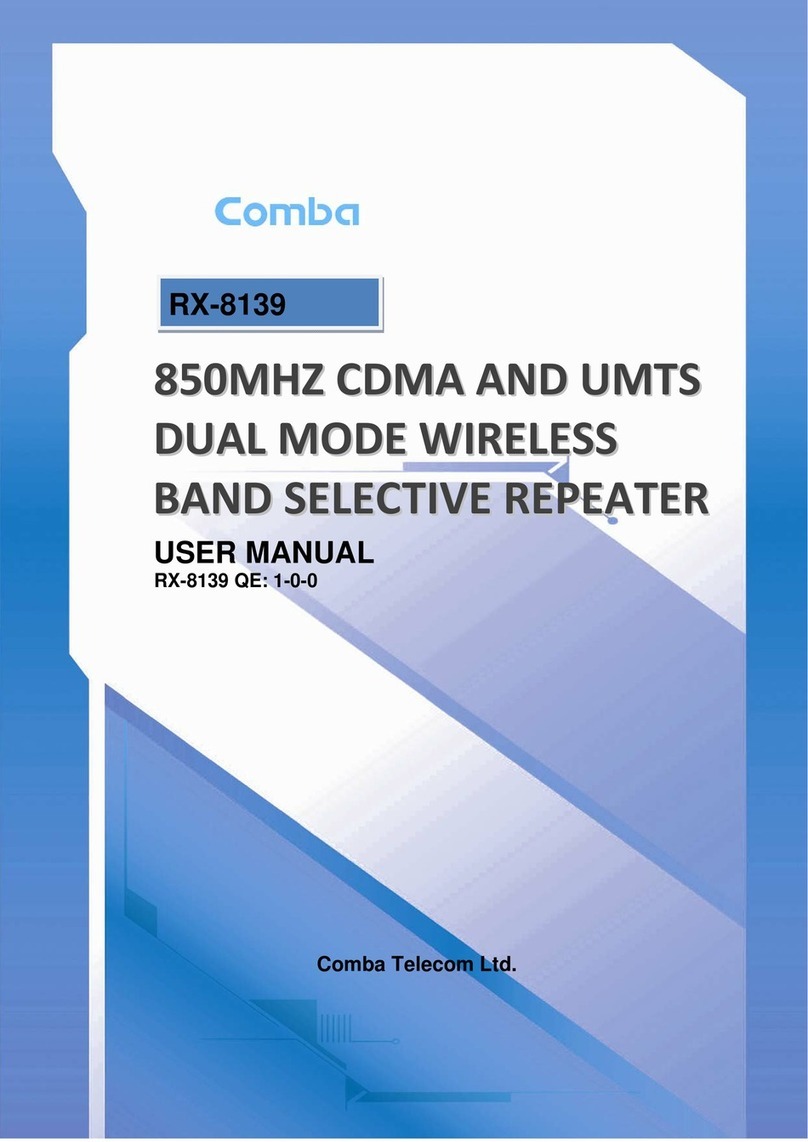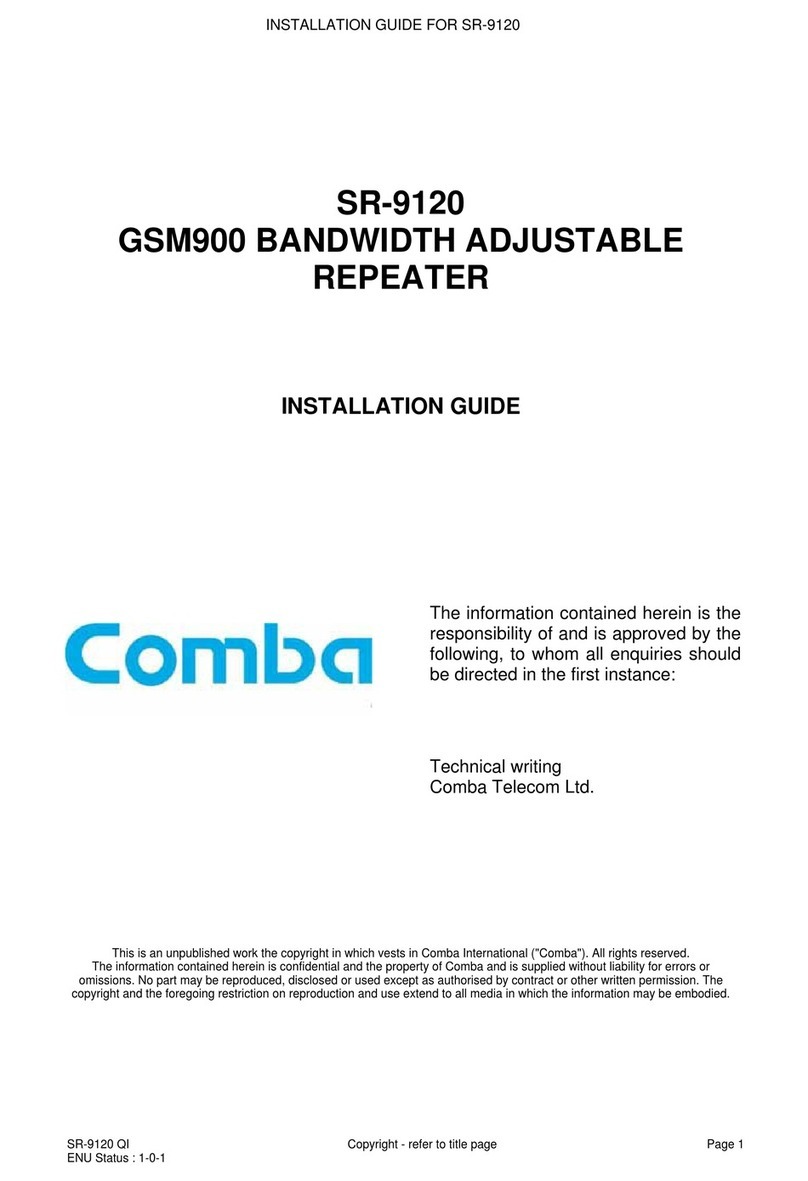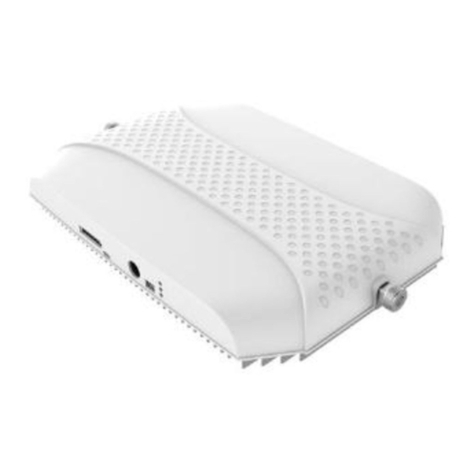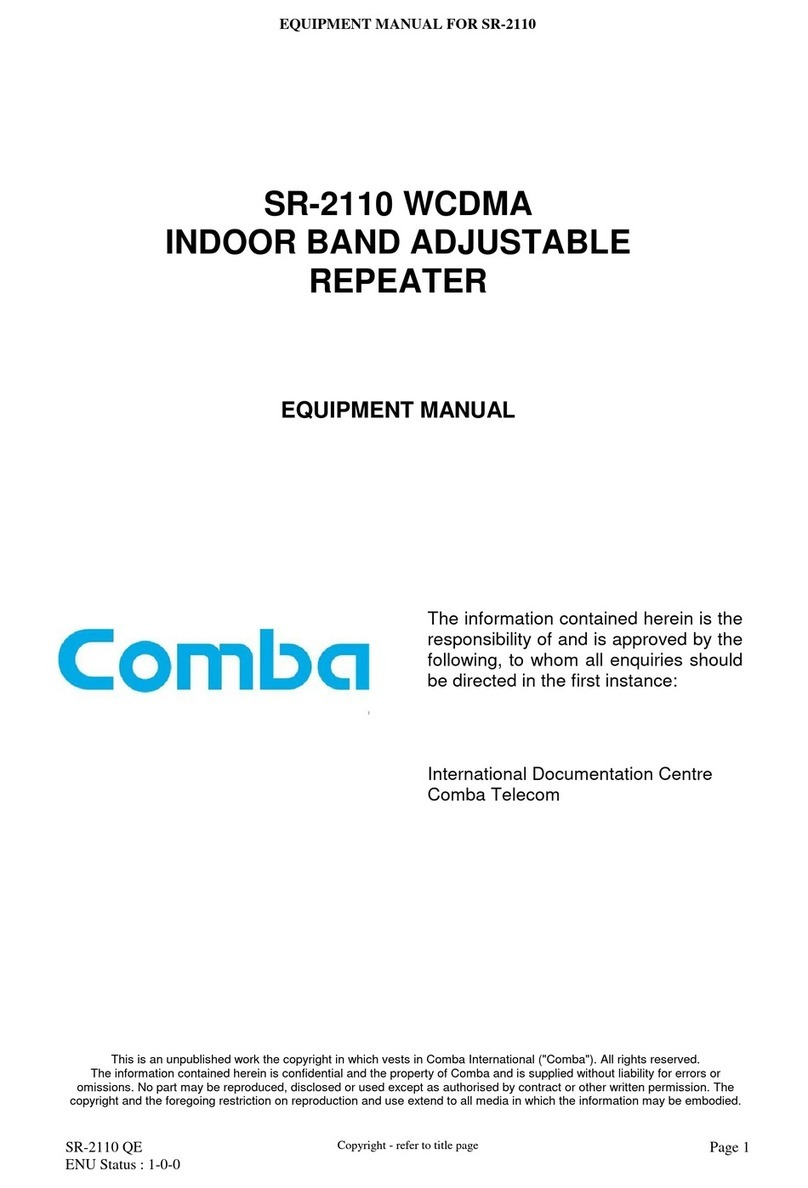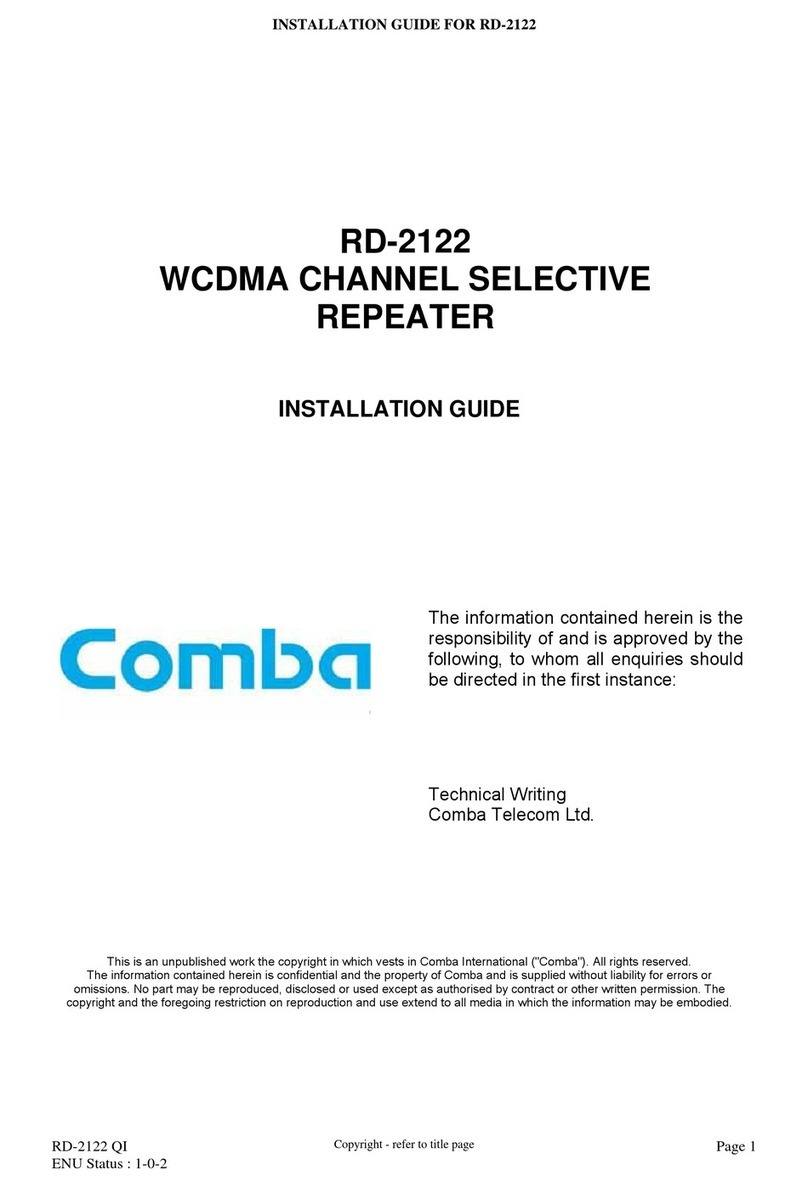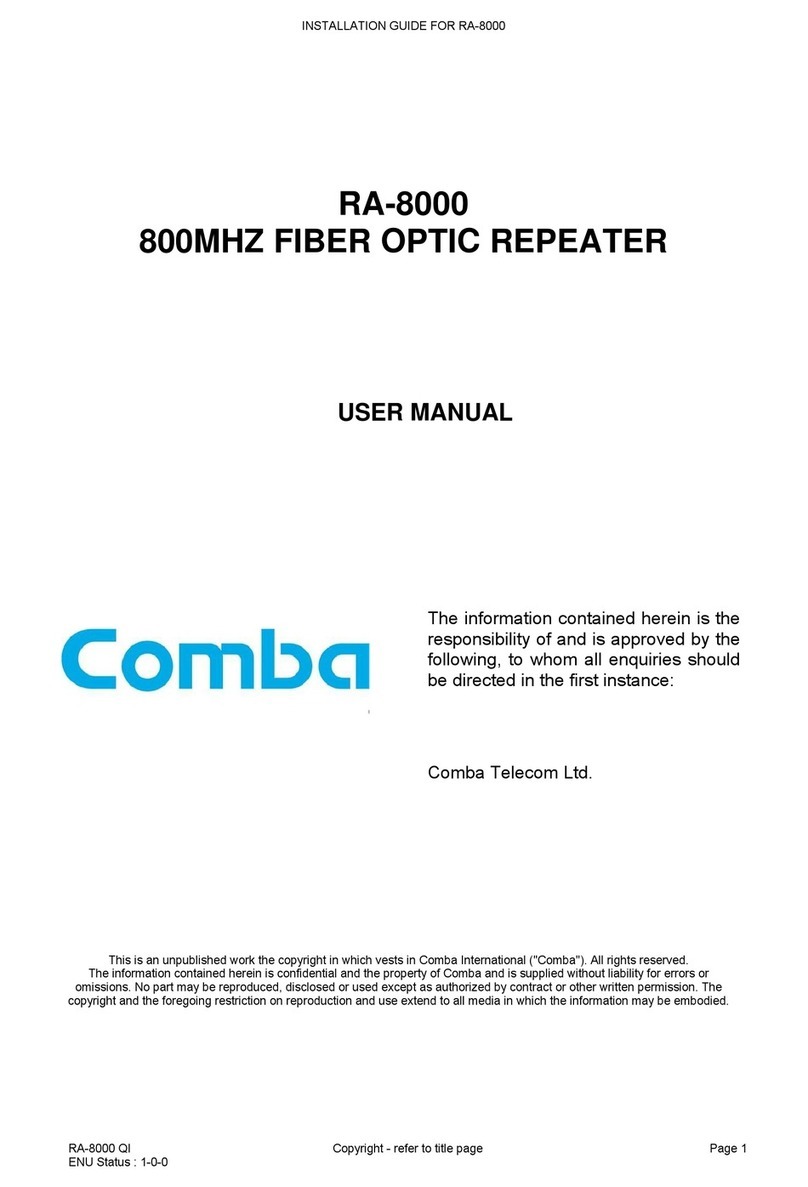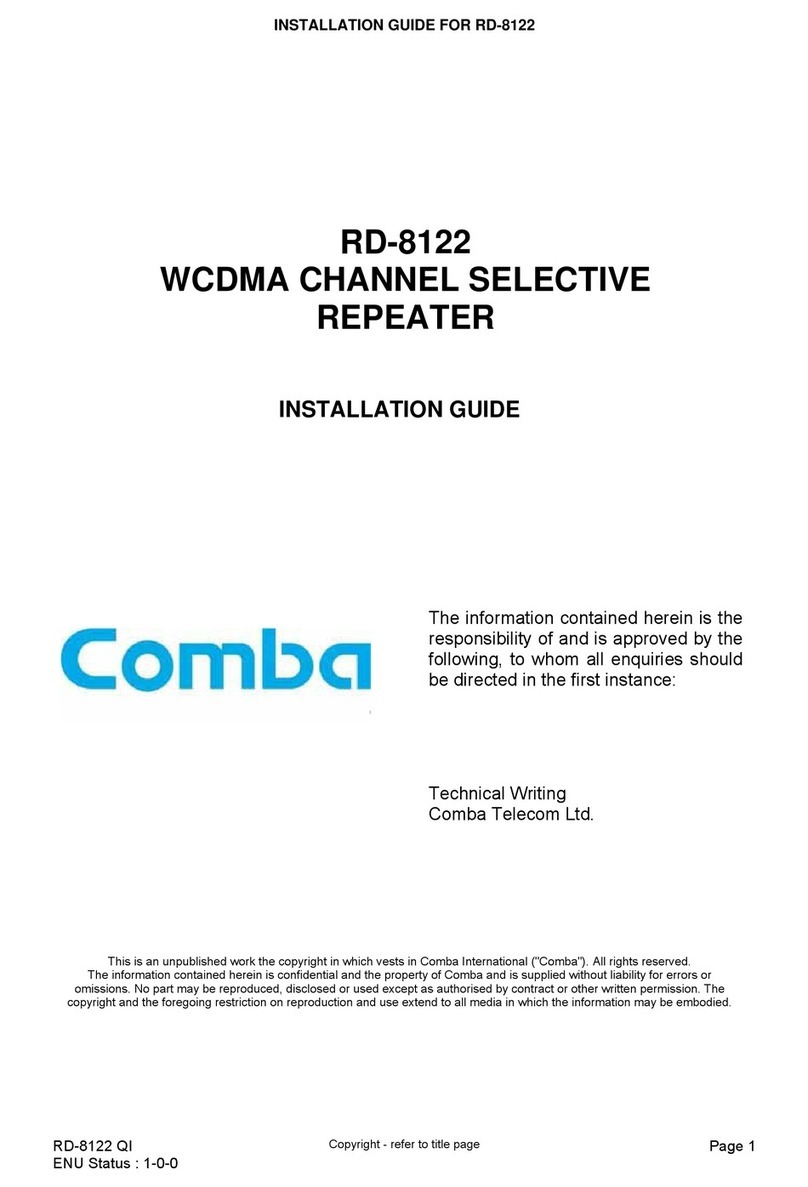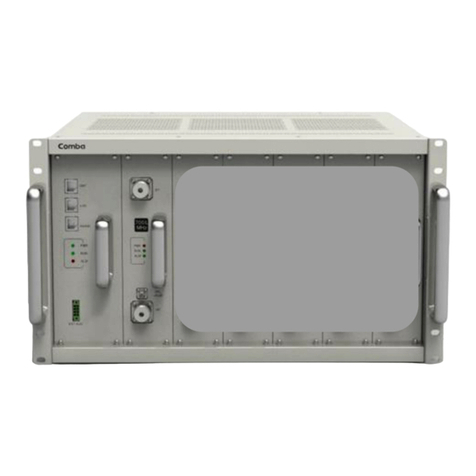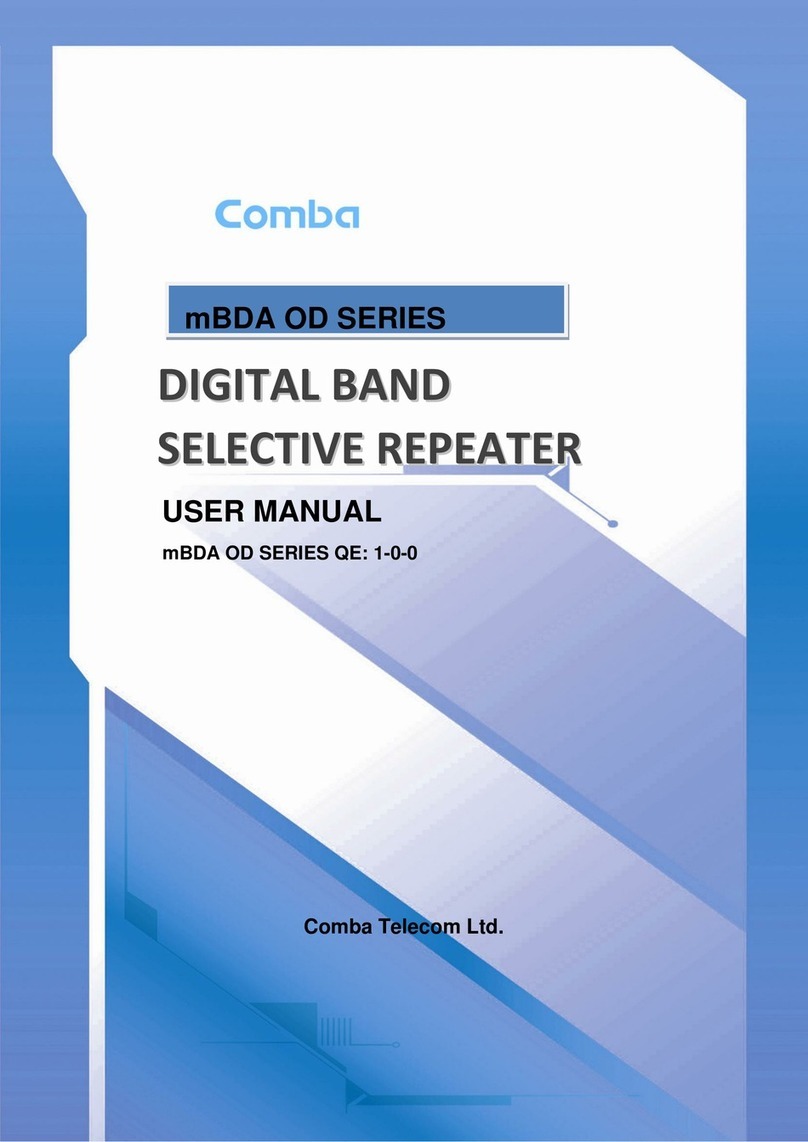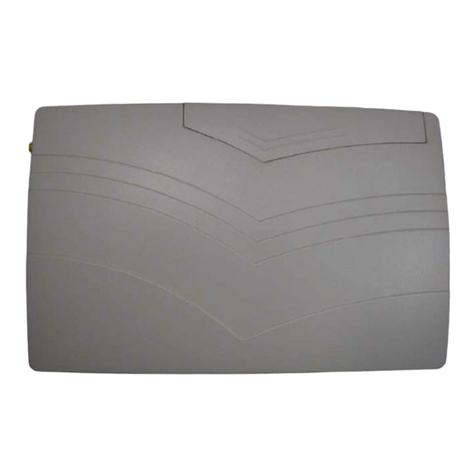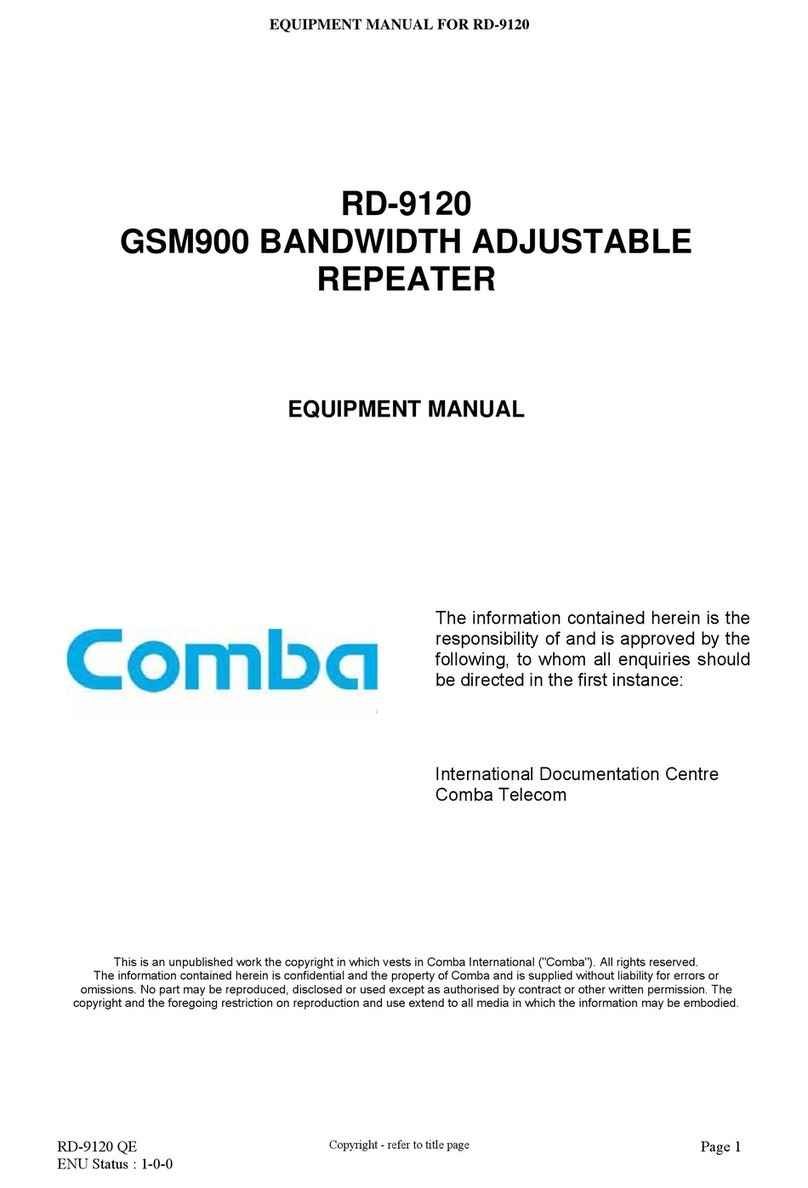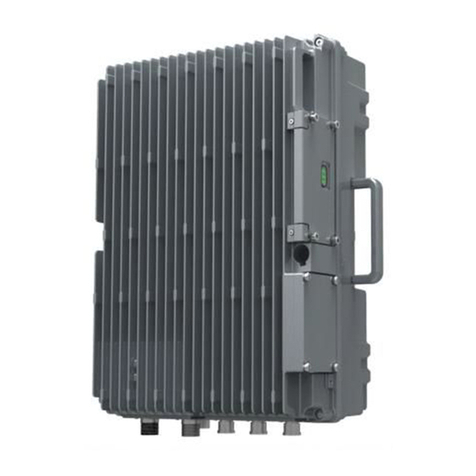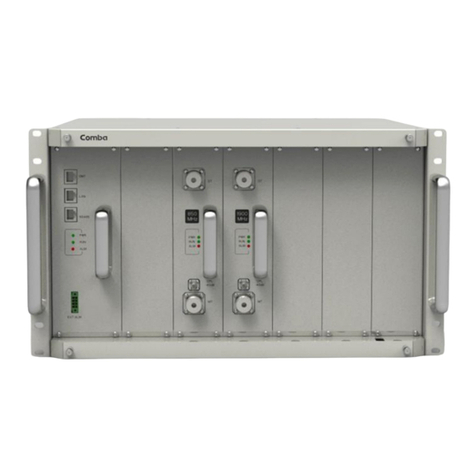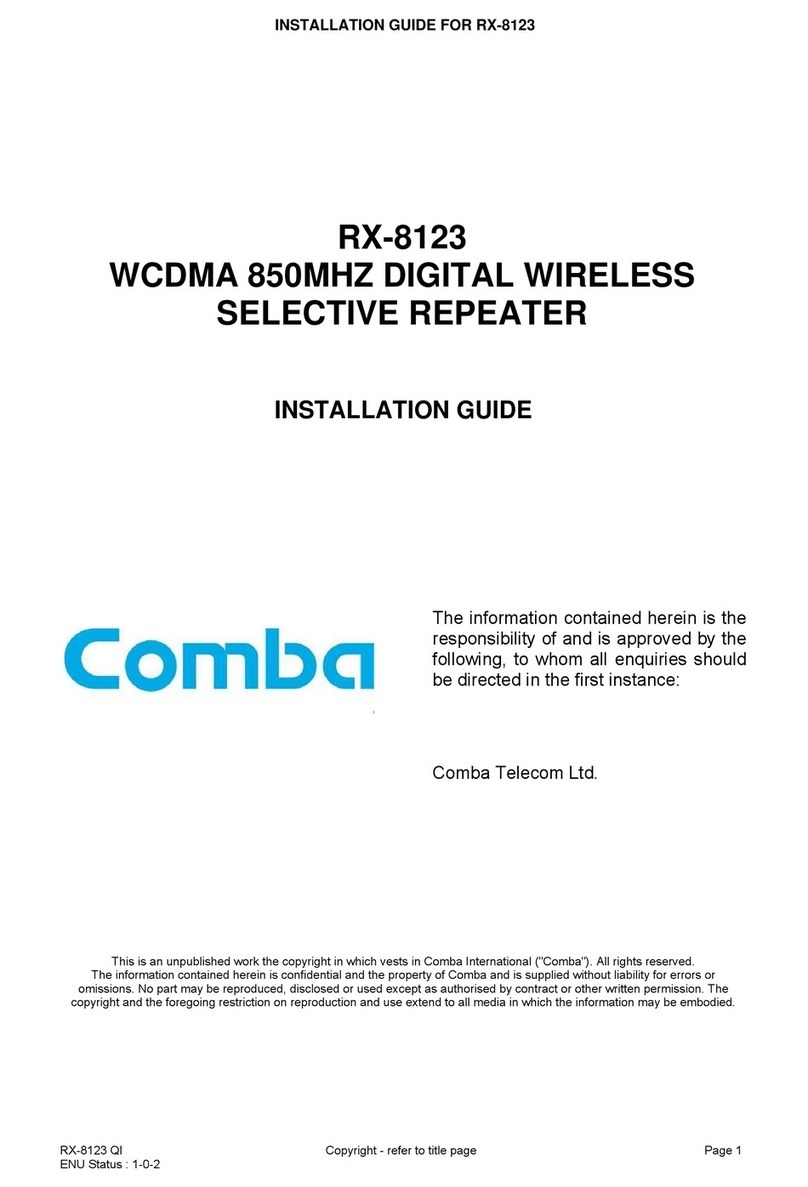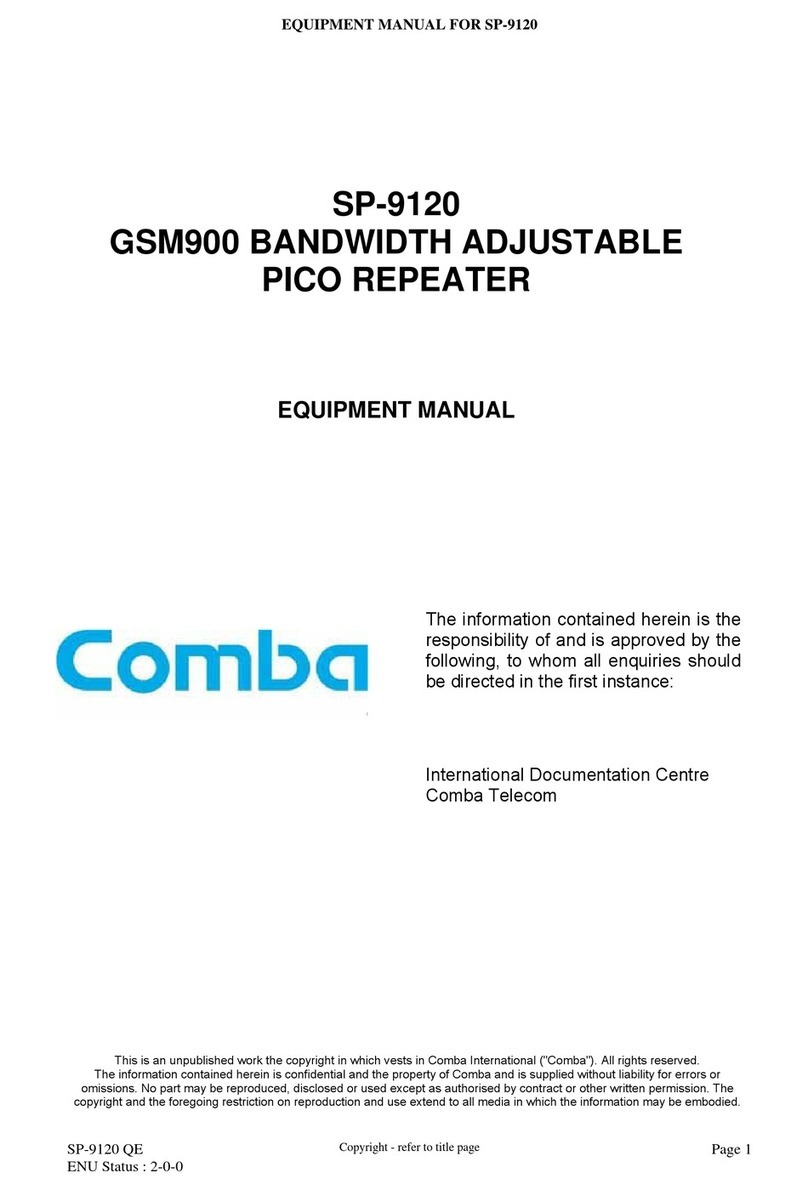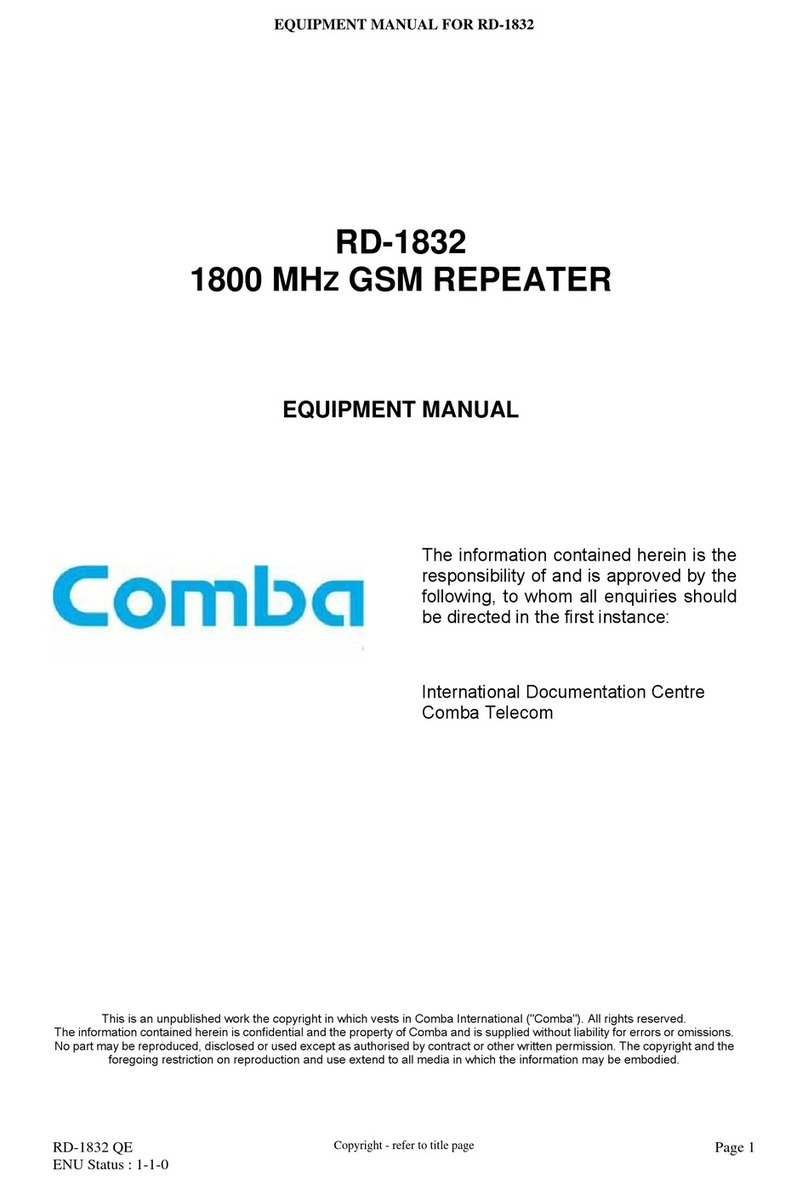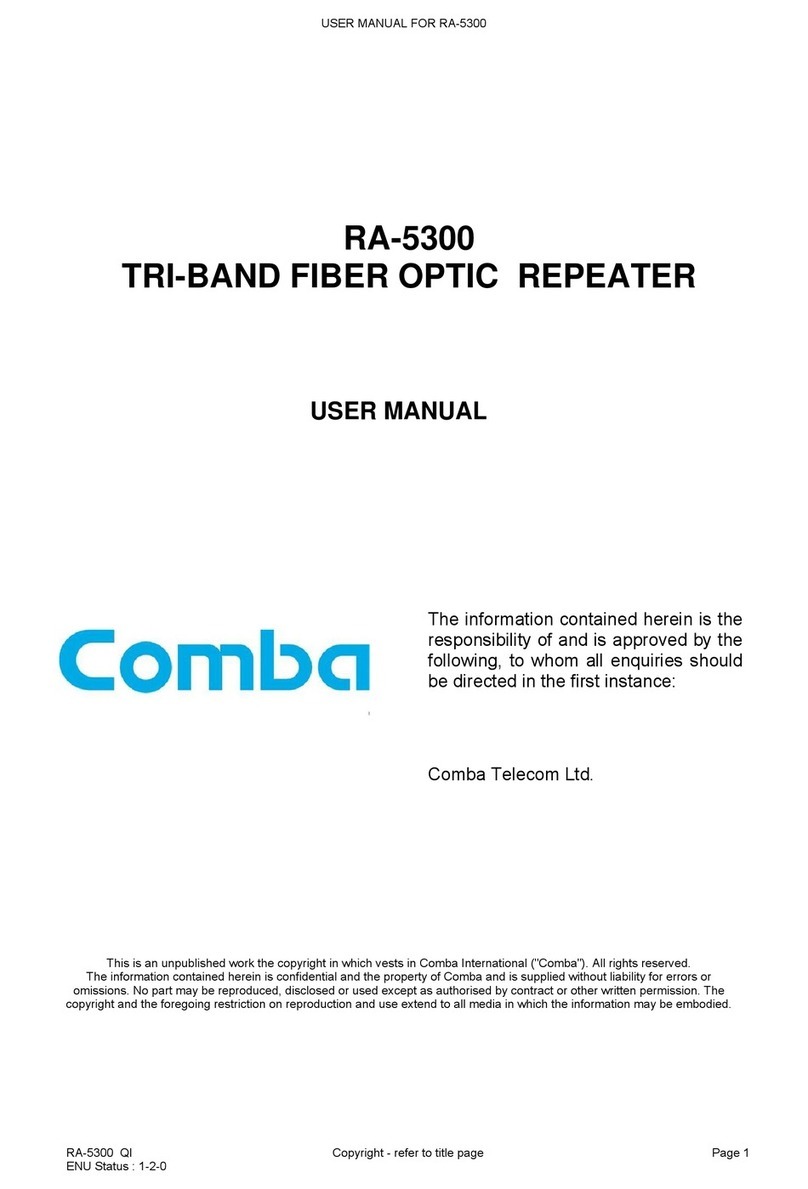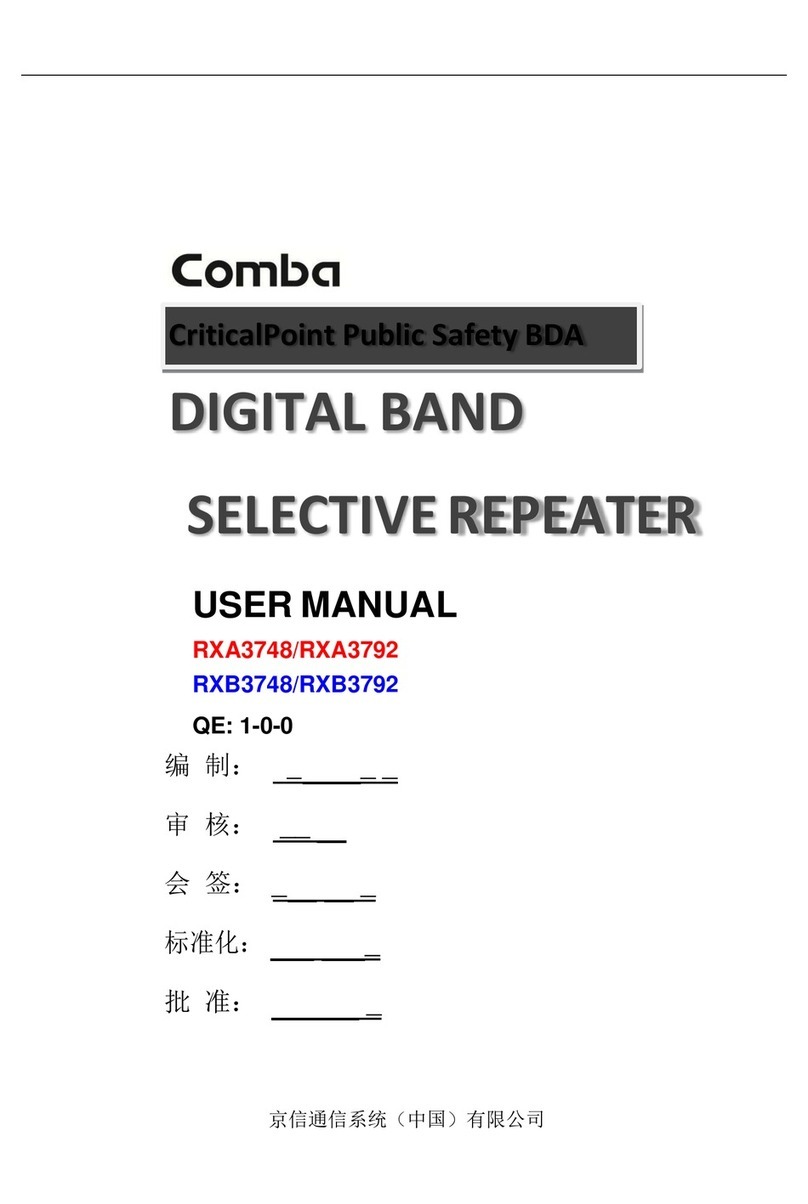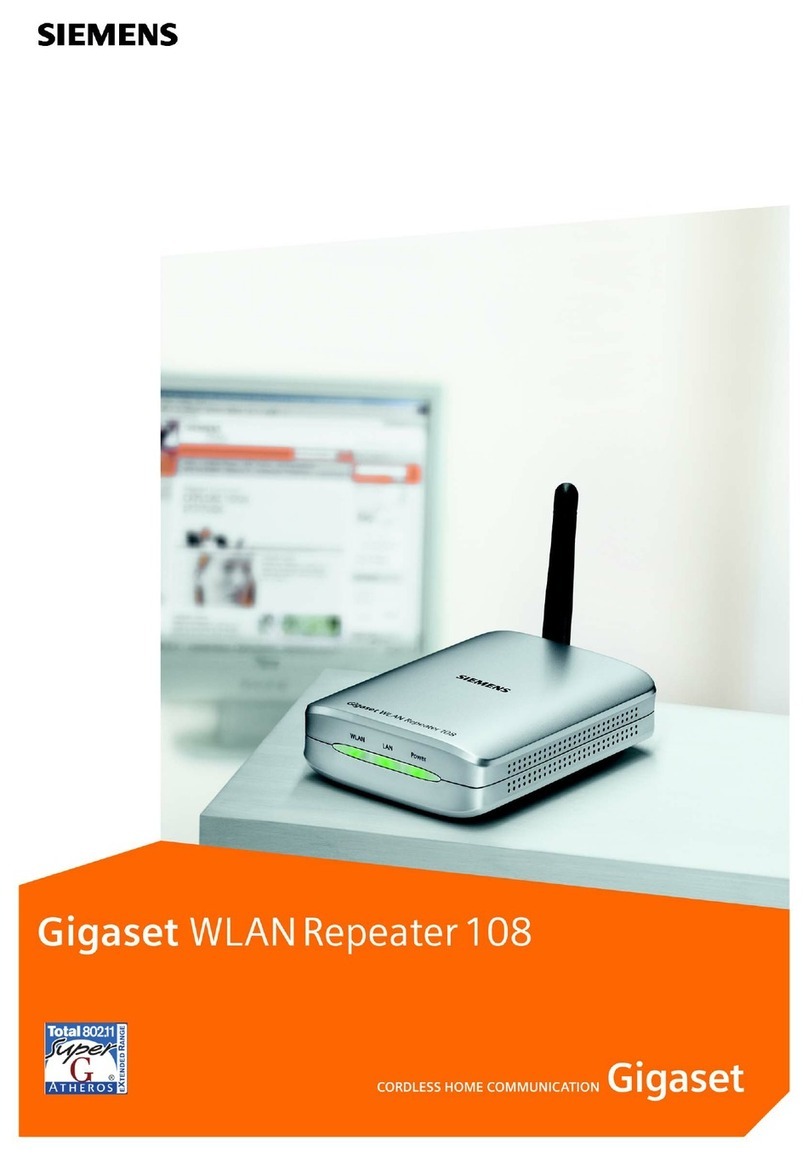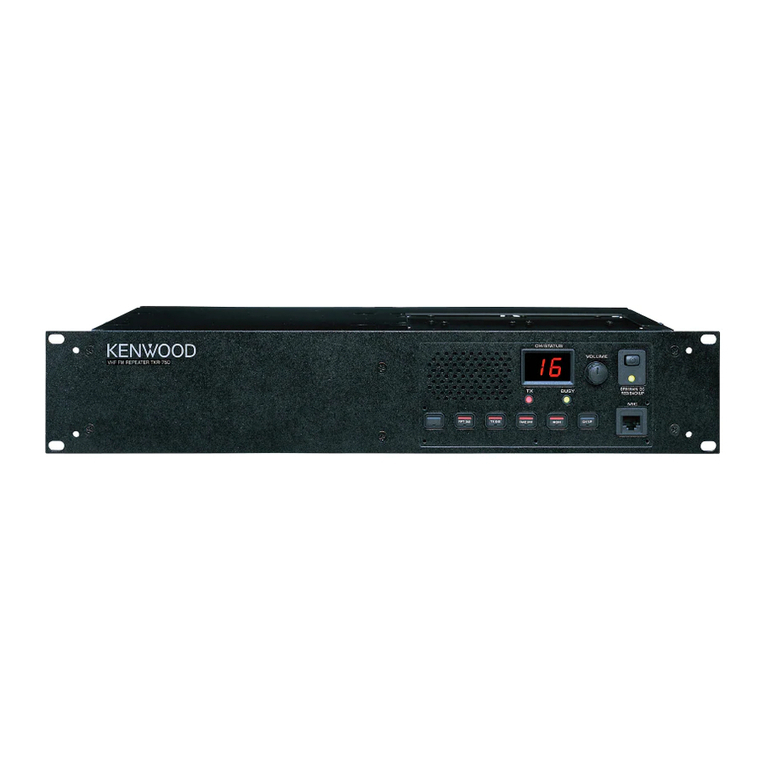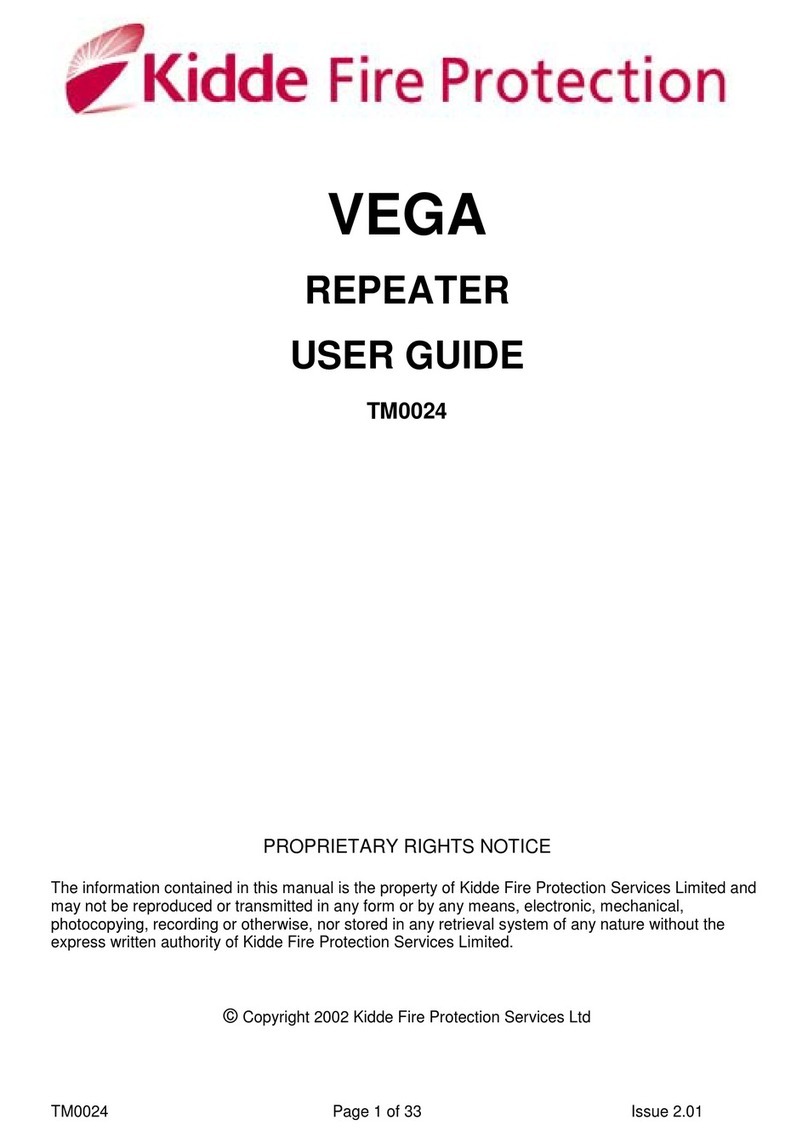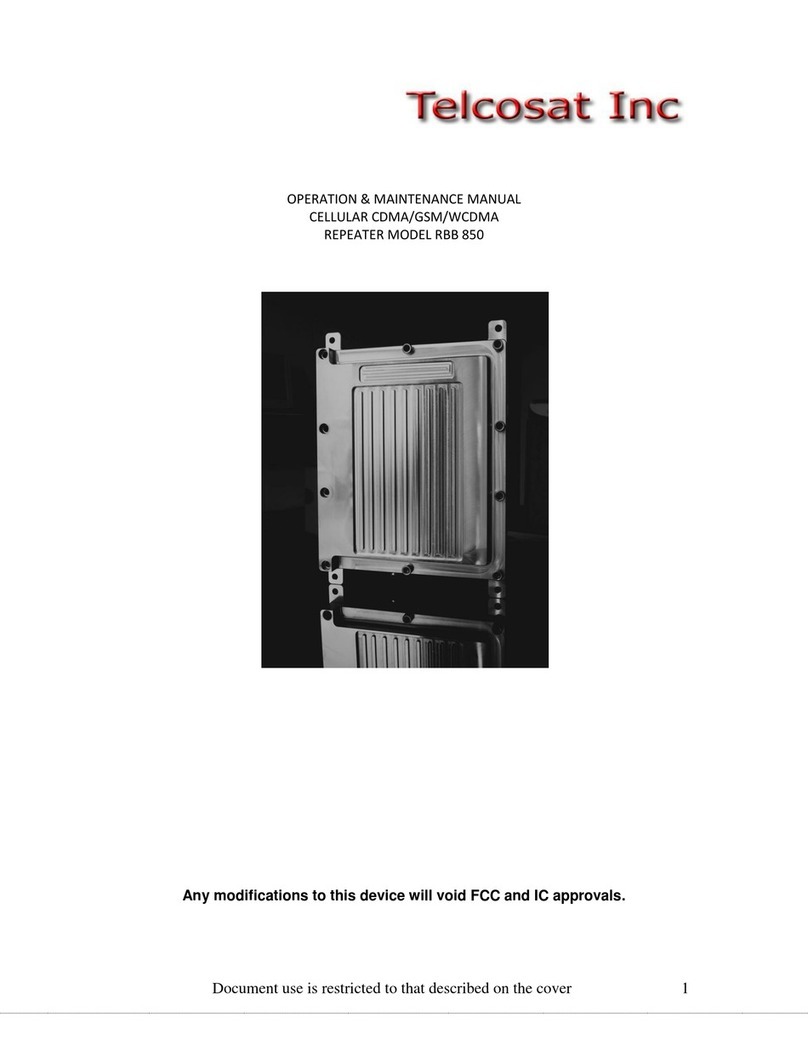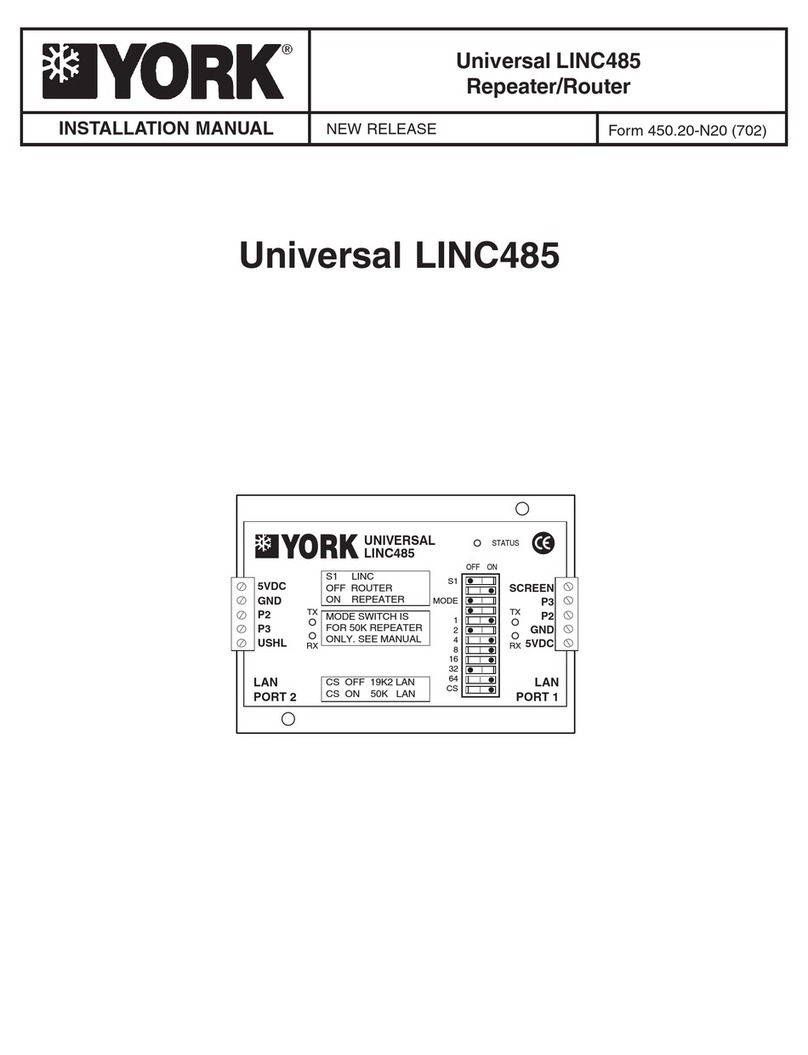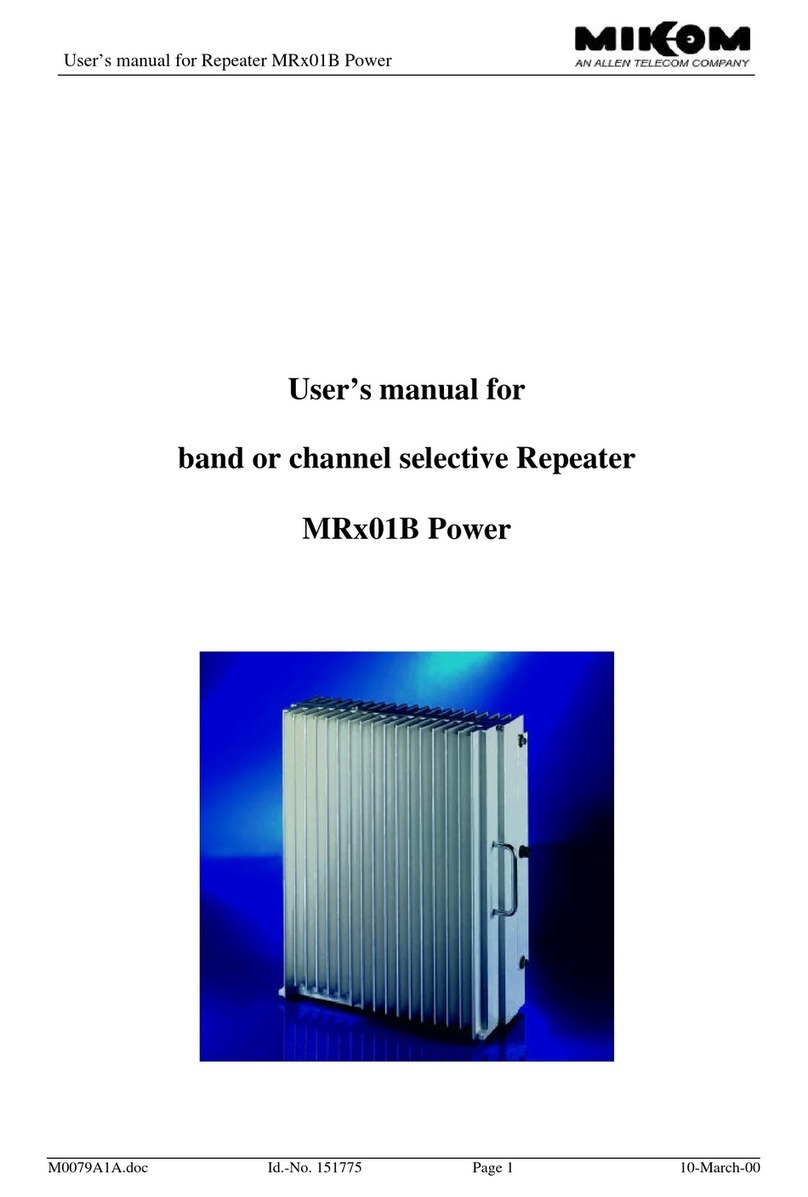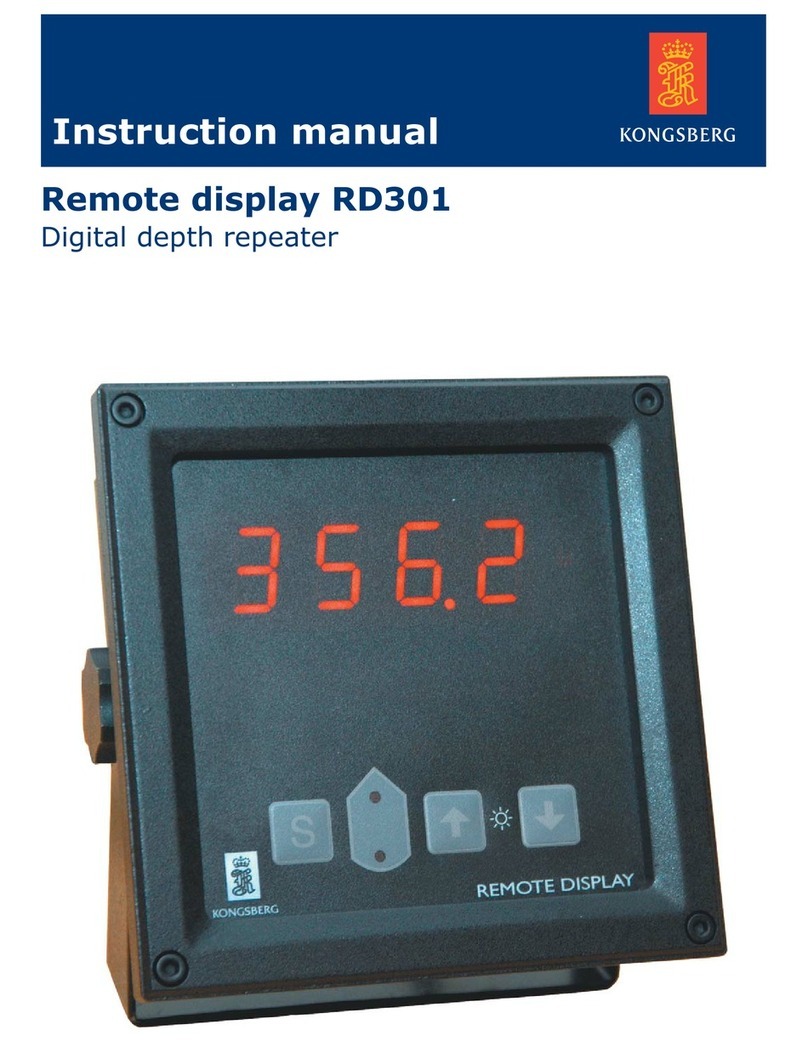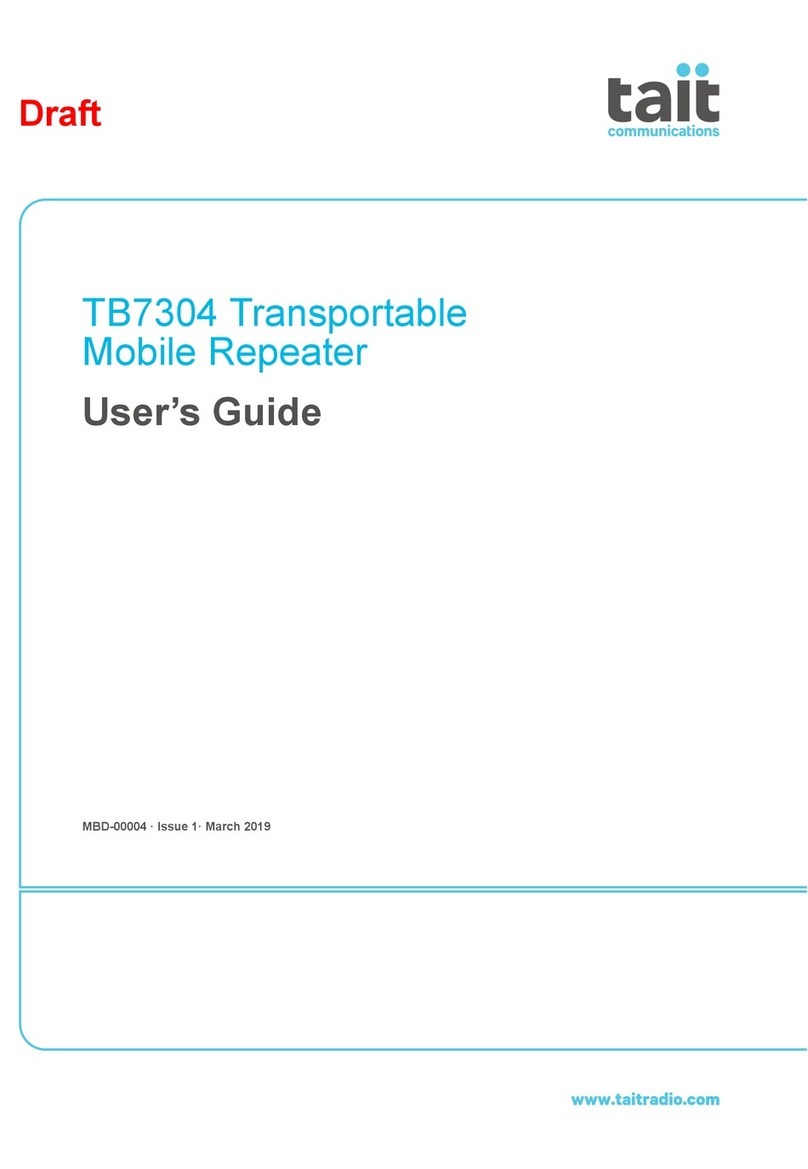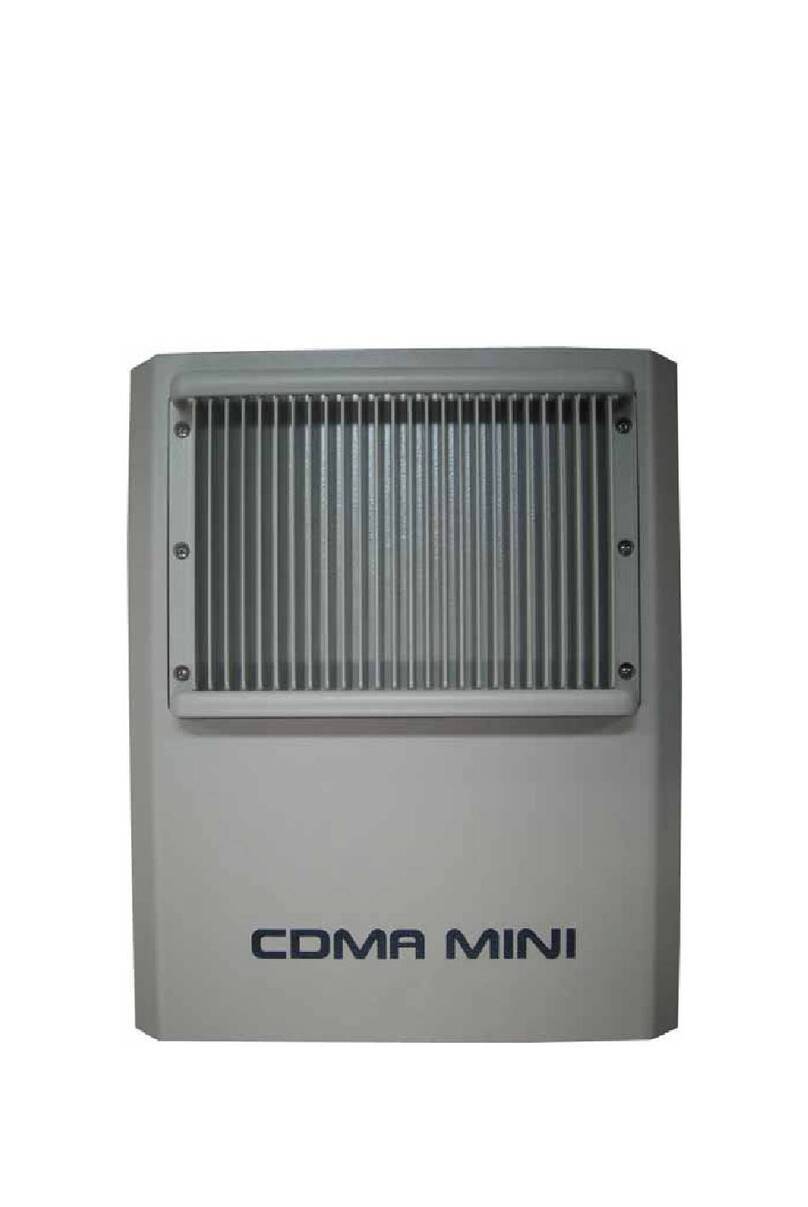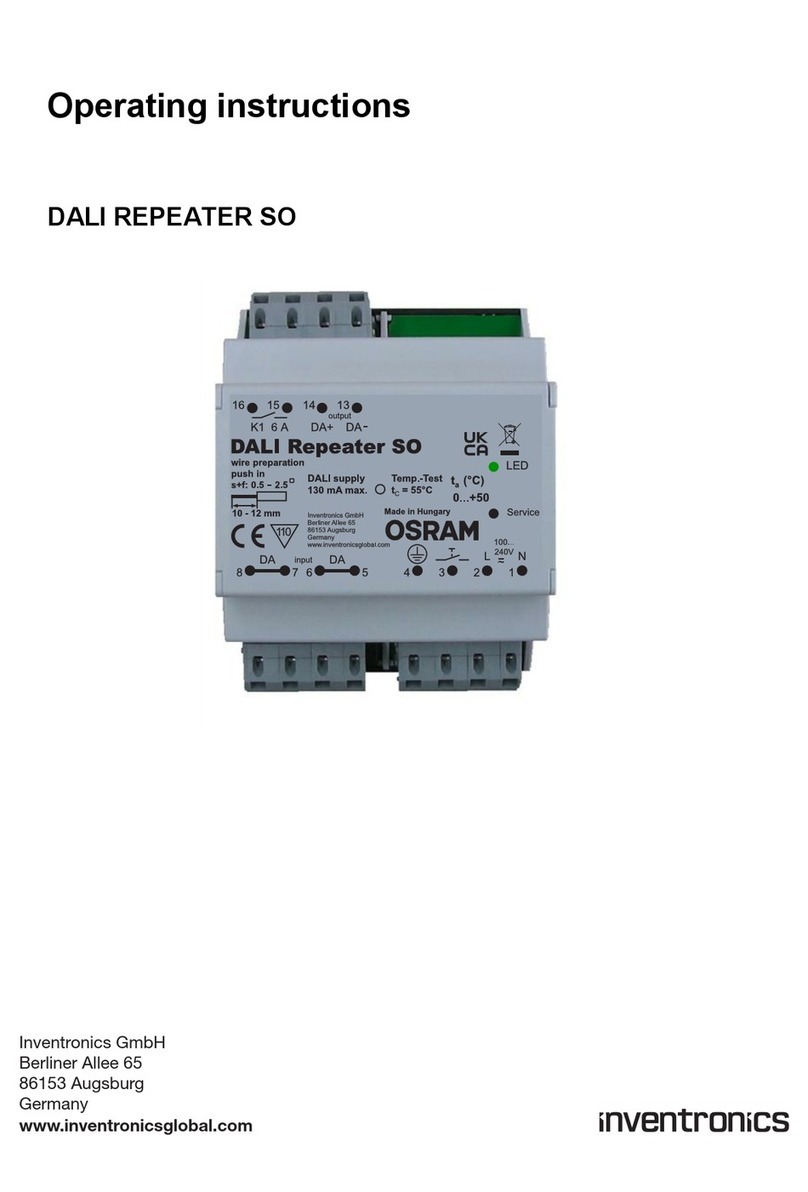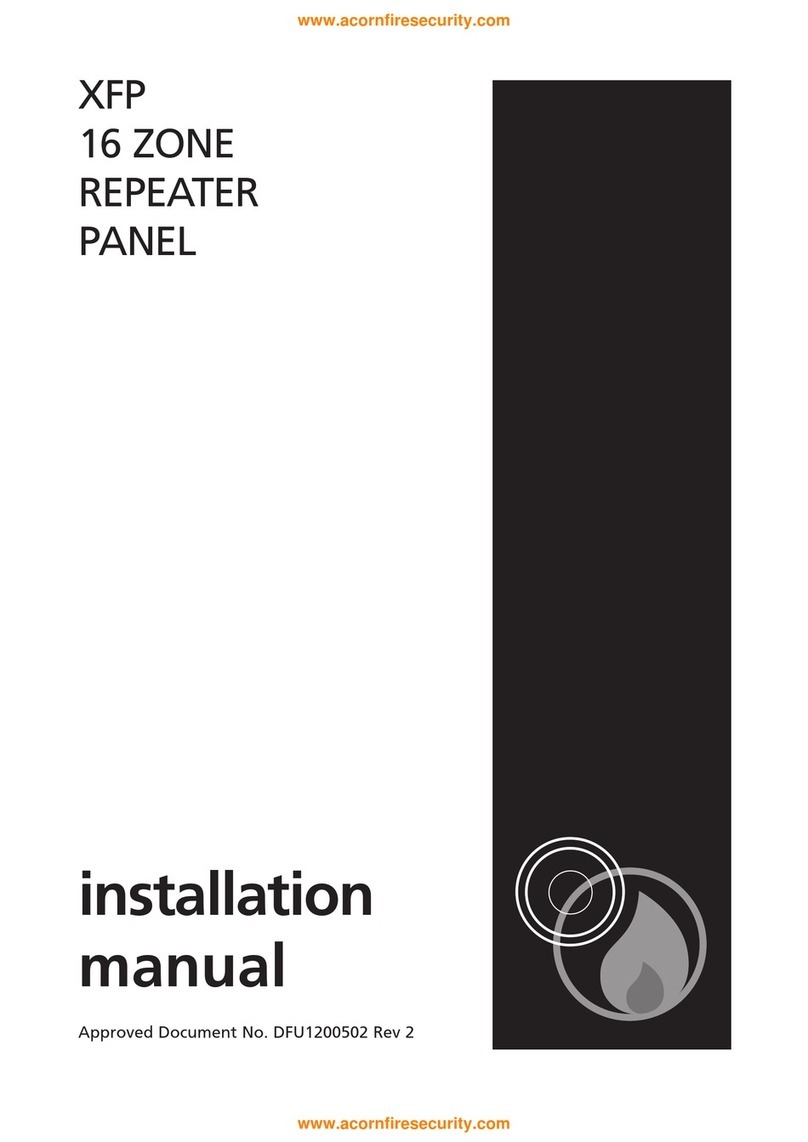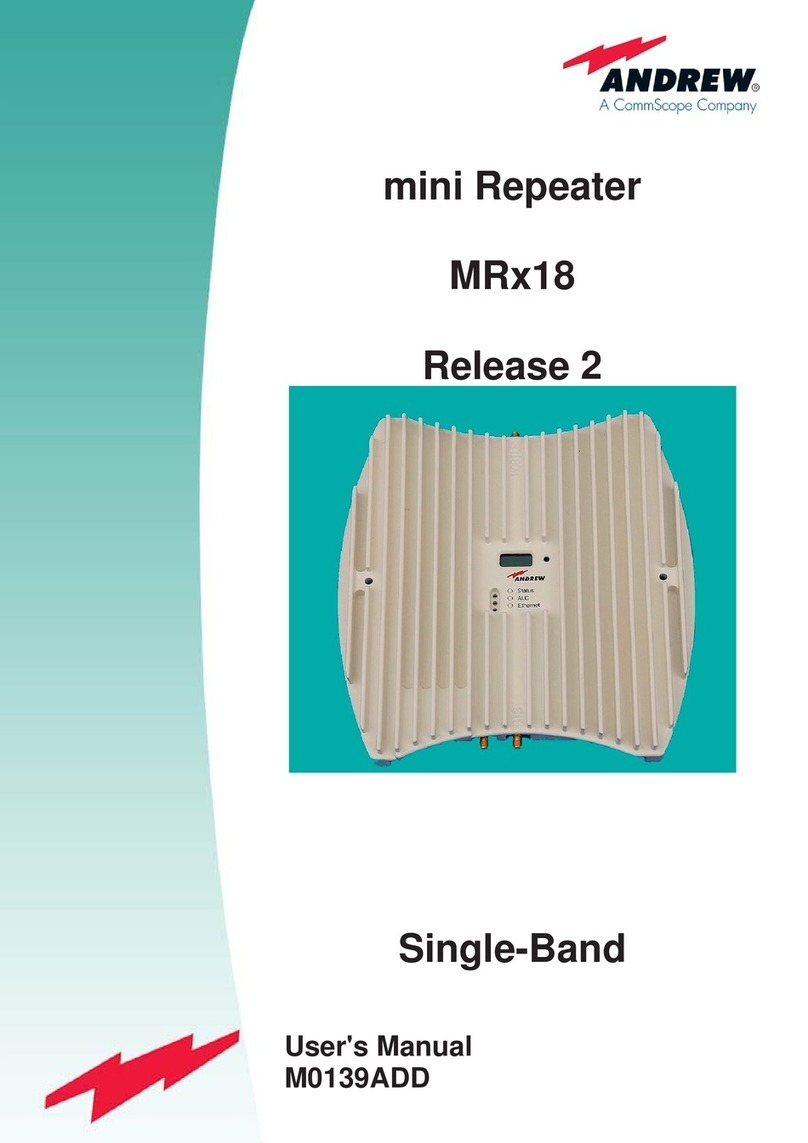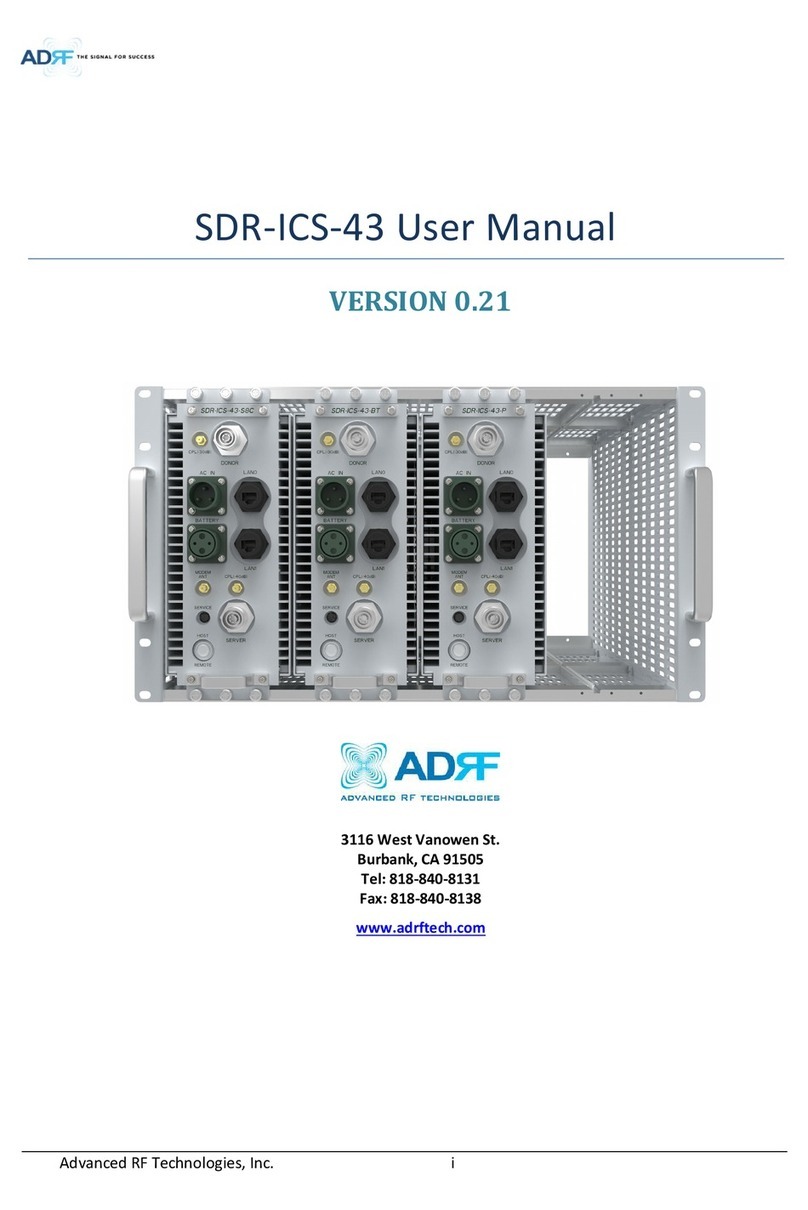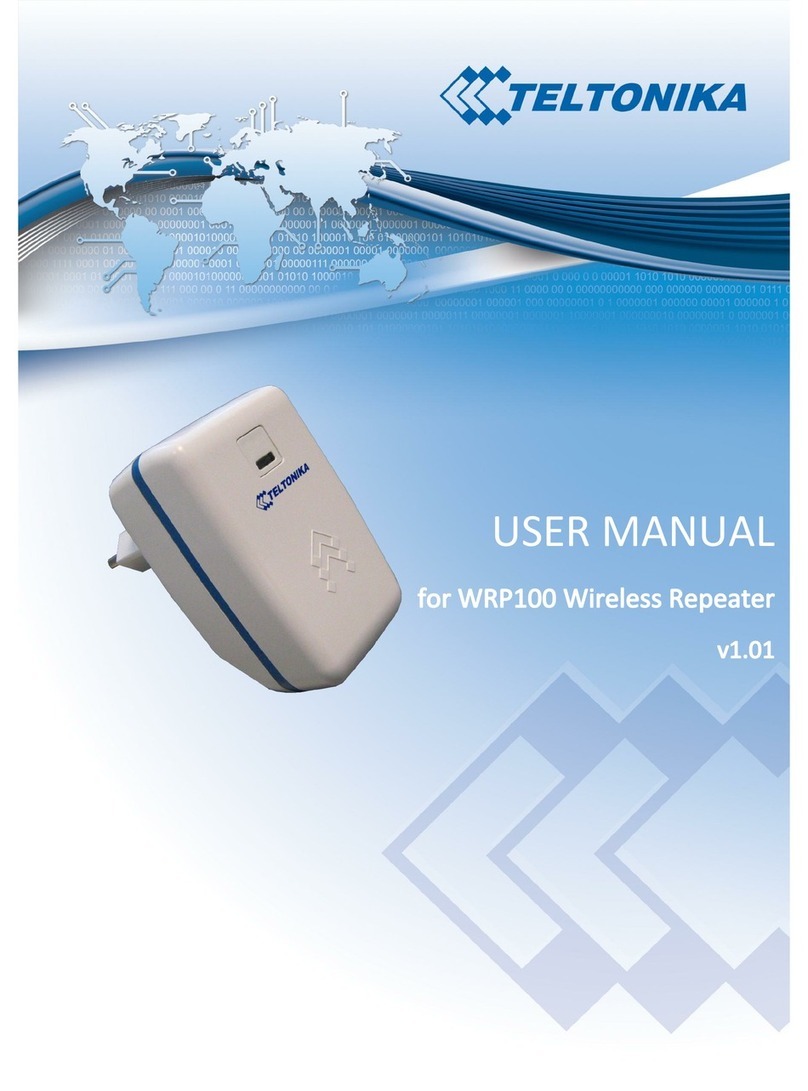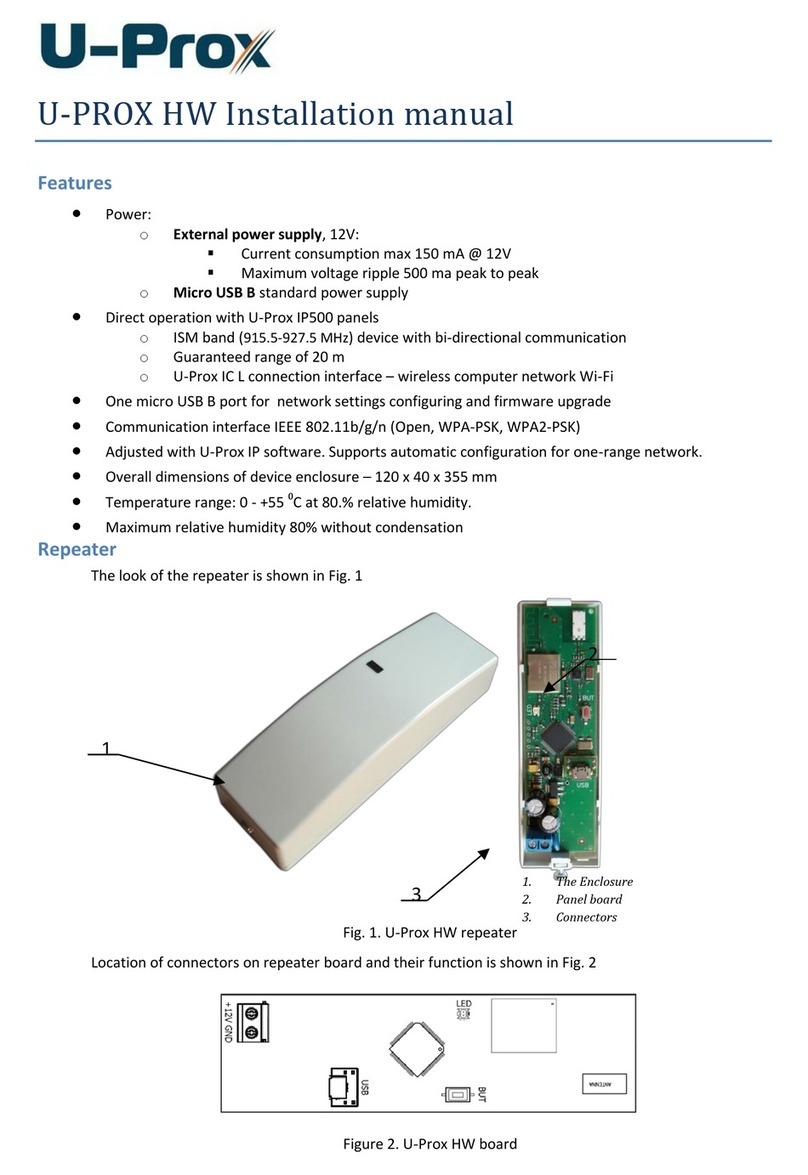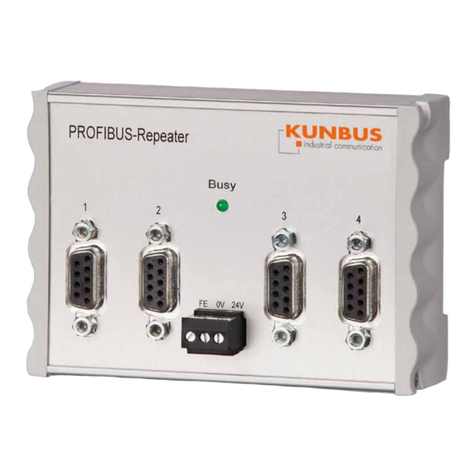USER MANUAL FOR RA-7100
RA-7100 II2 QI Copyright - refer to title page Page 2
ENU Status : 1-0-0
0.2 CONTENTS
Section Page
0.2 CONTENTS ........................................................................................................................... 2
0.3 INDEX TO FIGURES AND TABLES ..................................................................................... 4
0.4 HISTORY............................................................................................................................... 6
0.5 GLOSSARY OF TERMS ....................................................................................................... 7
0.6 SAFETY NOTICES AND ADMONISHMENTS...................................................................... 8
1GENERAL INFORMATION ................................................................................................... 9
2EQUIPMENT DESCRIPTION.............................................................................................. 12
2.1 SYSTEM DIAGRAM ............................................................................................................ 12
2.2 TYPICAL APPLICATION..................................................................................................... 13
2.2.1 SINGLE FIBER CONFIGURATION .................................................................................... 13
2.3 EQUIPMENT LAYOUT........................................................................................................ 14
2.4 EQUIPMENT CONSTITUTION ........................................................................................... 17
2.5 KIT OF PARTS ....................................................................................................................18
3INSTALLATION ...................................................................................................................19
3.1 WARNINGS AND ALERTS ................................................................................................. 19
3.2 SITE PLANNING CONSIDERATIONS................................................................................ 20
3.2.1 REPEATER INSTALLATION CHECKLIST ......................................................................... 21
3.3 INSTALLATION PROCEDURES ........................................................................................ 22
3.3.1 GOODS INWARDS INSPECTION ...................................................................................... 22
3.3.2 TOOLS................................................................................................................................. 22
3.3.3 PREPARATION ................................................................................................................... 22
3.3.4 CABINET MOUNTING OF MU............................................................................................23
3.3.5 RU MOUNTING RACK DIMENSION .................................................................................. 24
3.3.6 WALL MOUNTING OF RU .................................................................................................. 25
3.3.7 POLE MOUNTING OF RU .................................................................................................. 27
3.3.8 DRIP-LOOP......................................................................................................................... 28
3.4 EQUIPMENT CONNECTORS ............................................................................................ 28
3.4.1 MU CONNECTORS ............................................................................................................ 28
3.4.2 RU CONNECTORS............................................................................................................. 29
3.4.3 COMBINER UNIT CONNECTORS ..................................................................................... 30
3.5 EQUIPMENT CONNECTION .............................................................................................. 31
3.5.1 GROUNDING CONNECTION............................................................................................. 31
3.5.2 LI-ION BATTERY CONNECTION ....................................................................................... 31
3.5.3 RF CONNECTION............................................................................................................... 31
3.5.4 CABLE CONNECTION........................................................................................................ 32
3.5.5 EXTERNAL ALARM CONNECTION................................................................................... 33
3.5.6 BTS ALARM CONNECTION ............................................................................................... 33
3.5.7 CONNECT TO PC............................................................................................................... 34
4COMMISSIONING............................................................................................................... 35
4.1 PRE-COMMISSIONING TASKS ......................................................................................... 35
4.2 LED INDICATORS .............................................................................................................. 36
4.2.1 MU LED INDICATORS........................................................................................................ 36
4.2.2 RU LED INDICATORS ........................................................................................................ 36
4.3 OMT..................................................................................................................................... 37
4.3.1 LOCAL AND REMOTE CONNECTIONS TO OMT............................................................. 37
4.3.2 LOCAL CONNECTION TO OMT ........................................................................................ 37
4.3.3 REMOTE CONNECTION TO OMT..................................................................................... 38
4.3.4 OMT CONFIGURATION ..................................................................................................... 38
4.3.5 SYSTEM INFO .................................................................................................................... 39
